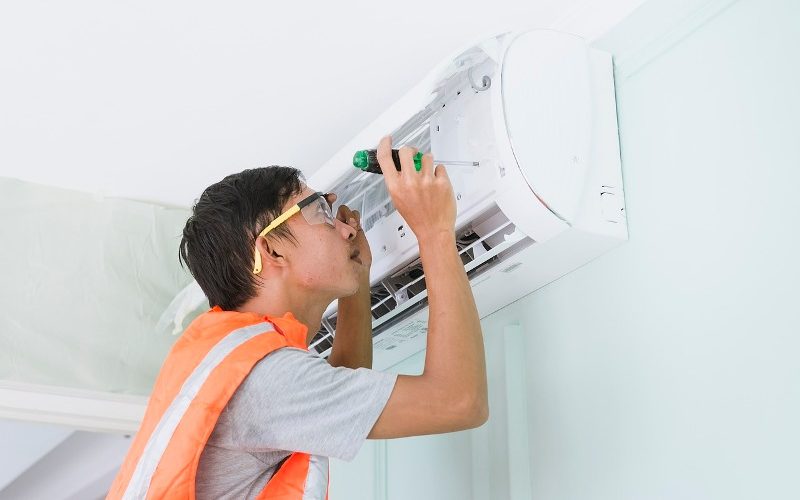As the summer heat becomes increasingly intense, it’s important to find ways to stay cool and comfortable in our homes. Heatwaves can be particularly challenging, as they bring prolonged periods of hot temperatures that put a strain on air conditioning systems. In this article, we will explore effective strategies to beat the heat and cool your home efficiently during a heatwave. Whether you’re dealing with a malfunctioning air conditioner or simply want to maximize its performance, these tips will help you stay cool and save energy.
If you encounter any issues with your air conditioning system, it’s crucial to address them promptly to avoid further damage and ensure optimal performance. In such cases, it’s recommended to seek professional assistance from reputable HVAC service providers like BHC Air Conditioning. Please visit https://bhcair.com/air-conditioning/ac-repairs/ to learn more about their services and schedule a repair appointment.
Understanding Heat Waves and Their Impact
Heatwaves have become more frequent and longer-lasting in recent years, according to the U.S. Global Change Research program. The average heatwave season is now 45 days longer than it was 50 years ago. During a heatwave, temperatures soar, and air conditioning systems often struggle to keep up. It’s important to be aware of common problems that can prevent your air conditioner from effectively cooling your home during these extreme conditions.
Troubleshooting Common Air Conditioning Issues
Several issues can hinder your air conditioning unit’s performance on hot days. Checking for these problems can help ensure your system is functioning optimally:
Dirty air filter: A dirty air filter can restrict airflow and reduce cooling efficiency. Regularly cleaning or replacing your air filter is essential for proper maintenance.
Refrigerant leak: A slow refrigerant leak can cause your air conditioner to struggle in cooling your home. If you suspect a leak, it’s best to call a professional to address the issue promptly.
Blocked condensing unit: A blocked condensing unit, especially common near coastal areas, can impede your air conditioner’s ability to cool your home effectively. Clearing any obstructions can improve performance.
Leaking ducts: Leaking ducts can lead to inefficient cooling and energy loss. Sealing or repairing any leaks is crucial for maintaining the efficiency of your air conditioning system.
Undersized or older unit: If your air conditioning unit is undersized or outdated, it may struggle to cool your home adequately. Consider upgrading to a more efficient and appropriately sized unit.
It’s important to note that sometimes, there may not be anything wrong with your air conditioning unit. The effectiveness of cooling your home during a heatwave is also influenced by the outside temperature.
Understanding Cooling Expectations During a Heatwave
To set realistic expectations, it’s important to understand the limitations of air conditioning systems during a heatwave. The cooling capacity of even the most advanced air conditioner is typically about 20 degrees cooler than the current outside temperature. However, implementing additional strategies can help you achieve a more comfortable indoor environment even in extreme heat.
Tips for Efficiently Cooling Your Home During a Heatwave
When facing a heatwave, every effort to keep your home cooler can make a significant difference in both comfort and energy savings. Here are eight tips to help you cool your home more efficiently during a heatwave:
1. Adjust Your Thermostat
Setting your thermostat to a higher temperature can help reduce the workload on your air conditioning system. During extreme heat, it’s best to set your thermostat between 75-78 degrees or higher. Embracing a slightly warmer indoor temperature can make a noticeable impact on energy consumption and cooling costs.
2. Utilize Your Fan
Switching your fan to the “on” position instead of leaving it on “auto” can help circulate the air in your home more effectively. This simple adjustment helps distribute cool air and can alleviate temperature differences, particularly in two-story homes. If you’re experiencing significant temperature variations, consider exploring alternative solutions to address the issue.
3. Keep Shades Closed
Harnessing natural shade can significantly impact the temperature inside your home. Just as people did in the past, utilize curtains or shades to keep the sunlight out during extremely hot days. Keeping the shades closed on the sunny side of your house can contribute to a cooler indoor environment.
4. Close Off Unused Rooms
If certain areas of your home are unoccupied, closing off the air vents and doors to these rooms can conserve energy. By limiting the airflow to unused spaces, you can redirect cool air to the occupied areas, effectively lowering the ambient temperature of your home.
5. Harness the Power of Ceiling Fans
Ceiling fans are a valuable addition to your cooling strategy. While they don’t cool the air in a room, they create a wind-chill effect that can make you feel cooler. By using ceiling fans, you can raise the thermostat setting on your air conditioner, reducing its workload and energy consumption.
6. Avoid Using Heat-Generating Appliances
On scorching hot days, it’s best to avoid using appliances that generate heat, such as stoves, dishwashers, and dryers. By refraining from using these appliances, you prevent introducing additional heat into your home. Instead, take advantage of the summer weather and cook outdoors on a grill for a refreshing change.
7. Maintain Your Air Conditioning System
Proper maintenance is key to ensuring your air conditioning system operates efficiently. Regular service and upkeep can extend its lifespan and keep your utility bills in check. If you live in a coastal area, it’s important to be aware of the impact of salt deterioration on your AC unit. Salt corrosion can reduce its capacity and energy efficiency, leading to potential breakdowns. Addressing these issues promptly can help maintain optimal performance.
8. Consider Upgrading Your Air Conditioning System
If your air conditioning system is over ten years old, it may be time to consider upgrading to a newer, more efficient unit. Older units tend to lose efficiency over time, and advancements in technology can offer improved performance and energy savings. According to ENERGY.GOV, upgrading to a newer air conditioner can save up to 20% on cooling costs.





